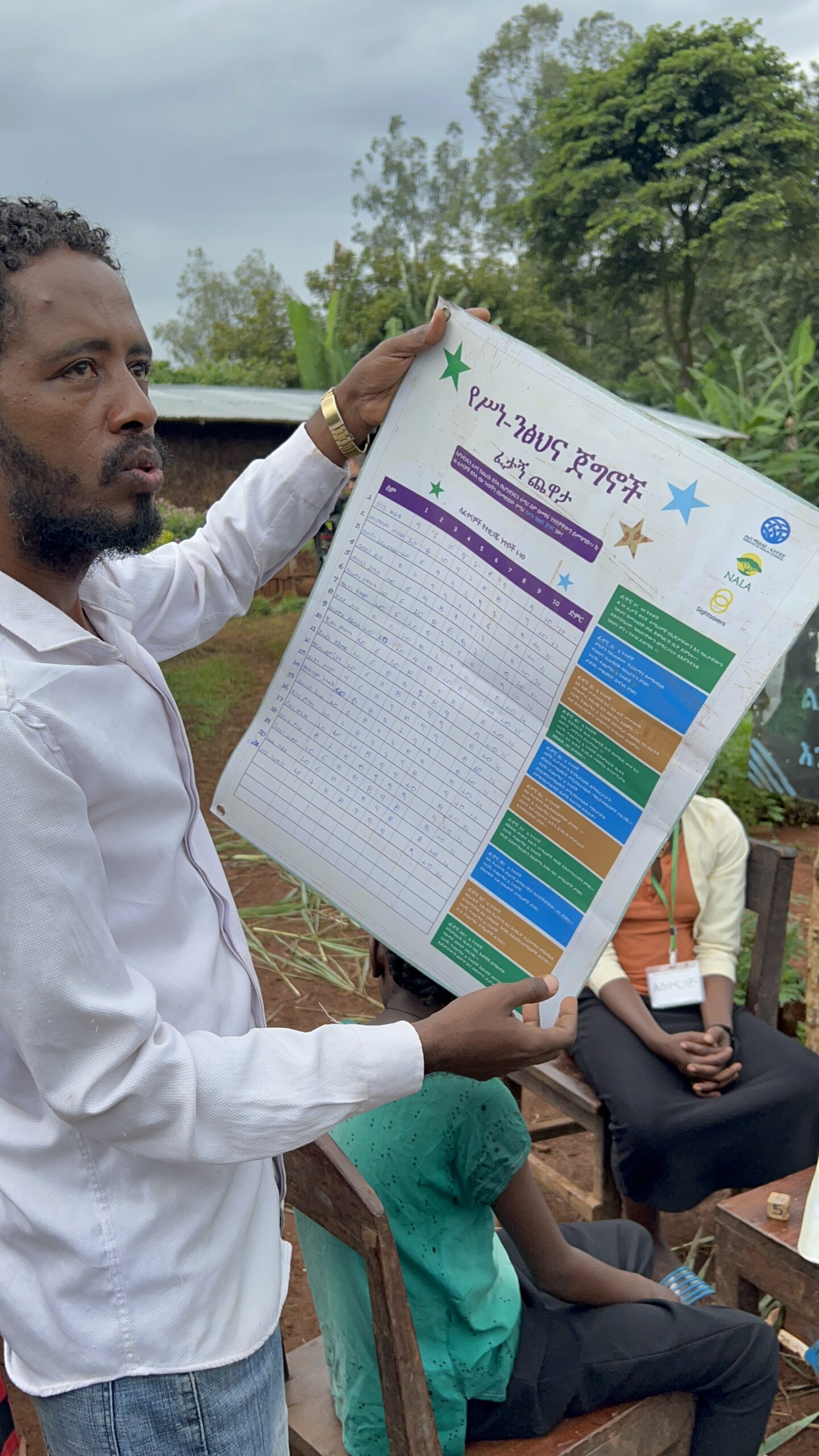In late 2021, the South West Ethiopia Peoples’ Region (SWEPR) was established in Ethiopia, with a total of six zones, including several where NALA implements school-level projects targeted at schistosomiasis, intestinal worm, and trachoma prevention and elimination . With the design of a new school curriculum for the Region underway, the SWEPR Regional Education Bureau requested the support of NALA for the integration of health and hygiene messages into the regional curriculum, with the aim of sustainably changing behaviors and reducing disease prevalence, whilst simultaneously increasing local government ownership of health education in primary and pre-primary schools. Targeting school-aged children during the period in which they form hygiene habits aims to reduce the risk of contracting WASH-related NTDs, improving health, increasing school attendance, and providing better future economic prospects for individuals, communities, and countries.
Leading the process is a committee of local education and health professionals who will both identify gaps in health topics within the current curriculum, and work in collaboration with the regional education bureau to facilitate the smooth integration of materials. In accordance with the committee’s conclusions regarding health-related education, and in consideration of the regional curriculum reform, context-appropriate and specific tools will be developed by NALA for SWEPR curriculum integration. The new and adapted materials and tools designed by NALA will take into account evidence-based and innovative materials and methodologies for disease prevention, which will be further tested in schools to ensure they are as impactful as possible in promoting healthy habits. In an effort to maximize the impact of health materials integration and curriculum changes, health messaging will not only be considered as a separate subject but rather as a component of several subjects for the reinforcement of messages and the formation of lifelong behaviors.
Starting in 2023, this project aims to utilize NALA’s expertise in behavior change communication, whilst encouraging local ownership for the promotion of sustainable changes, in line with Ethiopia’s NTD Strategic Plan for NTD control and elimination across the Region.
